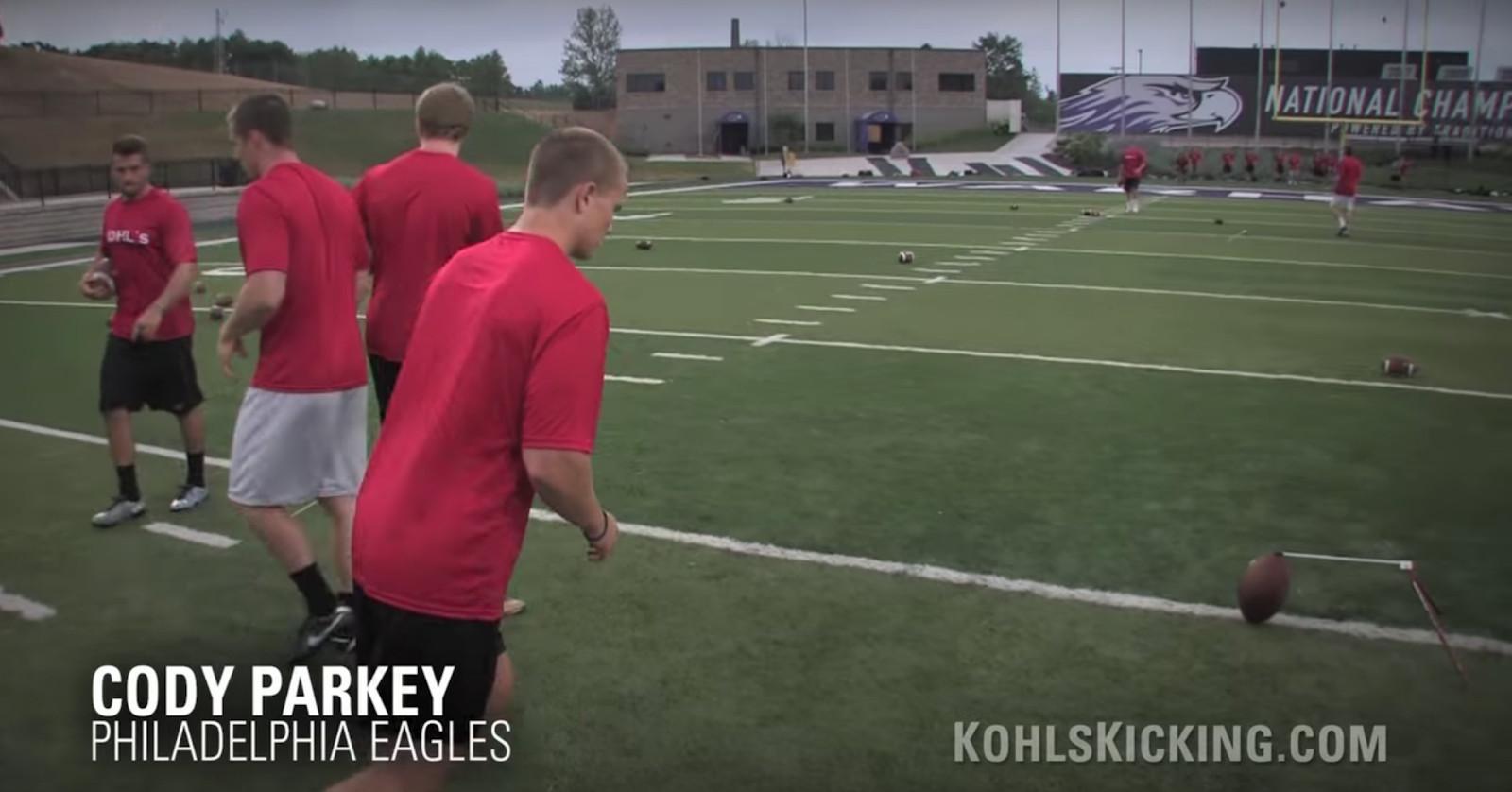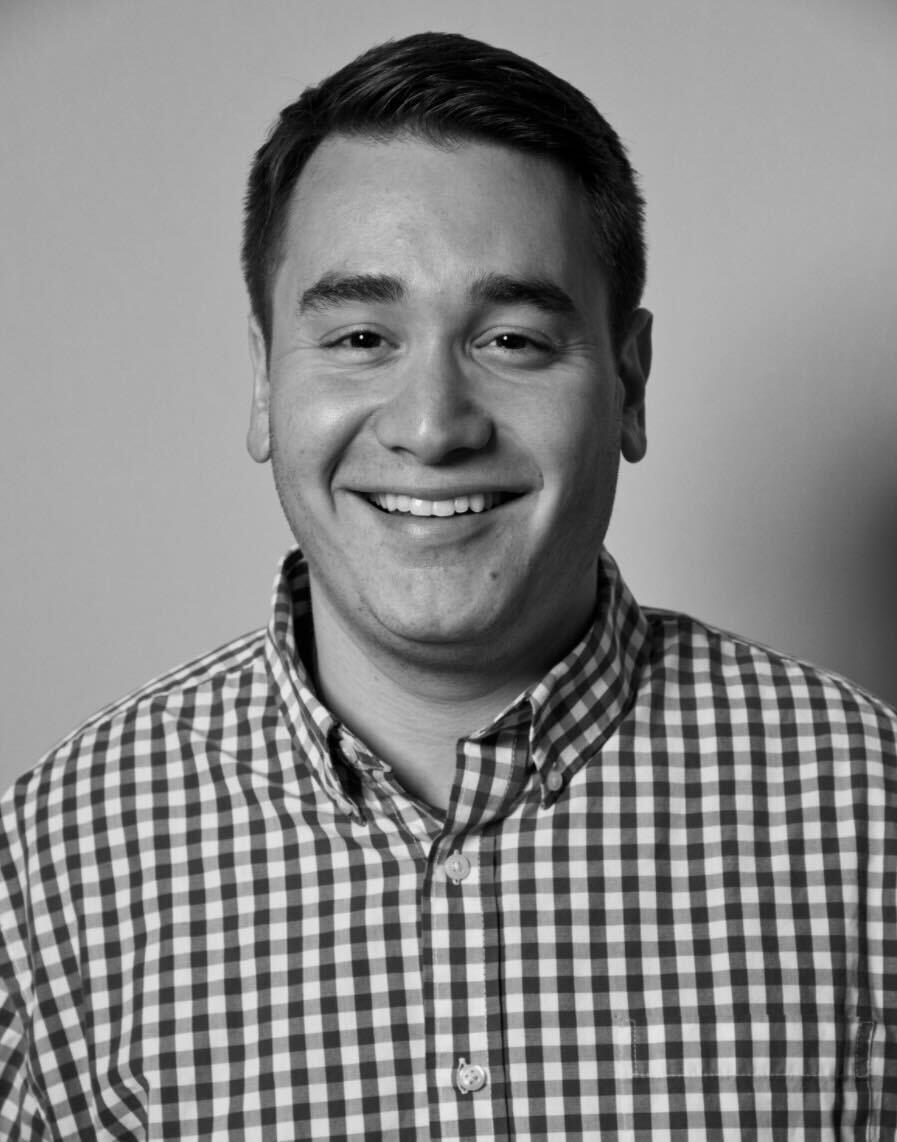May is something of a black hole for NFL updates. The draft ends in late April and training camp isn’t set to begin until late July, and between those calendar pages is a barren news desert of rookie minicamps, OTAs, and contract non-negotiations. Entire weeks can pass when the biggest football news is Odell Beckham Jr. wearing a kilt to the Met Gala or the XFL releasing its 2020 schedule. Fans can be forgiven for checking out on football entirely for the next three months. But if they do, they’ll be missing the best story of this offseason: the Chicago Bears’ kicker drama.
Determined to rid themselves of the double doink demons that ended their season, the Bears cut kicker Cody Parkey and added eight kickers this offseason. The team whittled the group down to two, then traded for a third this week, but the most likely candidate is probably a fourth player still not on the team, though familiar to fans. Let’s run down how the Bears got to this place.
The Double Doink
Our story begins with Parkey. In the wild-card round in January, Parkey doinked the potential game-winner off of the upright, and it doinked again off the crossbar and into Philly’s dreams and Chicago’s nightmares.
Parkey did not invent the double doink. Detroit’s Jason Hanson pulled it off in 2000, and Chris Berman promptly coined the phrase. But Parkey will be remembered forever for it. That’s slightly unfair: Eagles defensive tackle Treyvon Hester said after the game that he got a hand on the kick, which was confirmed by a slo-mo replay. The official box score was adjusted to reflect a blocked kick, but this footnote will be lost to history. Perhaps it’s because Parkey didn’t earn himself much goodwill with fans: That January kick marked his sixth (and seventh) doink of the 2018-19 season after he hit the uprights once in Week 17 against Minnesota and four times against Detroit in Week 10. Each kick seemed to have a more resounding thud than the previous one.
Let’s do some back-of-the-napkin math to explain how ludicrous four doinks in one game is. The distance between the uprights is 18 feet and 6 inches. Let’s say kicks tend to either go through the goalposts or pass them within roughly six on either side. That means there’s roughly a 30-foot-wide space most kicks go through. That is 360 inches. The goalposts occupy between three and four inches each, meaning the goalposts occupy at most eight of the 360 inches in the range. In other words, of the horizontal range a kick may travel through, 97.7 percent of it is air. Parkey hit the 2.3 percent of that range four times in a row, which you would expect to happen on roughly 1 in 3.6 million tries. For comparison, the odds of being dealt a royal flush are 1 in 650,000. Bears fans had already been dealt a miserable kicking hand last year. Adding two more doinks to that total was ridiculously cruel, and the creative ways people have invented to remind Bears fans of it is even crueler.
Adding insult to injury, Parkey went on Today to discuss the missed kick as part of his own personal apology tour. (Please note the thumbnail on that tweet with the banner, “Cody Parkey speaks out.”)
Today’s Savannah Guthrie named Parkey the MHP—Most Honorable Player—confirming every nasty boomer comment about millennials being the participation-trophy generation.
Head coach Matt Nagy was not a fan.
“We always talk as a team, we win as a team and lose as a team,” Nagy said at the Bears’ final press conference of the season. “I didn’t necessarily think [Parkey’s Today interview] was too much of a ‘we thing.’”
Eight Isn’t Enough
In that same press conference, Bears GM Ryan Pace said that upgrading the kicker position was “an emphasis of focus for us, there will definitely be competition there.”
It’s been less of “an emphasis of focus” and more “Ocean’s Eleven getting the crew together” montage. Two weeks after Parkey’s double doink, the Bears signed former Tulsa kicker and fellow double-doinker Redford Jones.
Two months later, the Bears signed former Pitt kicker Chris Blewitt. He has heard all of the jokes about his last name—even the ones from Jimmy Kimmel—and he says they aren’t original. He also noted that when he missed his first kick as a sophomore in high school, the announcer simply said, “Chris Blewitt on the kick.” If he ends up as Chicago’s kicker, Al Michaels will have too much fun.
Blewitt’s inopportune last name became such a story line in college that the Pittsburgh-Post Gazette interviewed his father. The elder Blewitt explained that it probably comes from:
- A family history of glass-blowing, or
- The fact their ancestors, who lived in the hills of Great Britain a millennium ago, “were just poorly dressed, but our skin color was blue.”
The smart money is on the glass-blowing.
After Jones and Blewitt, the Bears then added Elliott Fry in mid-April. Fry is the all-time leading kicker in the illustrious history of the Alliance of American Football, making all 14 of his kicks including one attempt with a rather acrobatic followthrough.
With three kickers already on board, the Bears added two more undrafted free agents last month: Minnesota’s Emmit Carpenter and San Diego State’s John Baron II. Carpenter grew up a Packers fan and went to college in Minnesota, making him an enemy of Chicago twice over. Baron, on the other hand, was heavily recruited as an undrafted free agent.
“Chicago had pursued the former San Diego State kicker hard leading up to the draft, working him out at the SDSU practice field and having half a dozen people with the organization call to speak with him,” Kirk Kenney of the San Diego Union-Tribune wrote.
Why do six people need to talk to the fifth kicker on the team? How many rounds of interviews does the Bears’ employment process require? Were four of those people the other kickers on the roster? We may never get answers to these questions, but with five kickers set to enter rookie minicamp, Pace went out and invited three more kickers into the fray, giving the Bears eight in total. That is not a normal football tryout. That’s almost enough for a soccer team.
With eight kickers signed, the Bears had to test them during rookie minicamp from May 3-5 (organized team activities with the entire roster begin May 21). The Bears used “Doppler technology” to enhance their kicking evaluations, but as Dan Wiederer of the Chicago Tribune noted, “Doppler technology can’t identify the clutch gene.”
What does identify the clutch gene is pressure, so the Bears created as much as they could. With the entire team watching, Nagy lined up each kicker for a 43-yard kick—the same distance as Parkey’s double doink. Six of them missed. On Saturday, Jones missed a 48-yarder and then had to watch as his teammates did up-downs around him. Six of the eight kickers were cut by Sunday, leaving just Fry and Blewitt.
“I didn’t feel one sigh of relief the entire time I was here, really,” Baron said. “That’s the type of competition it was.”
The Kicking Yoda
Not only did the Bears enter last weekend with eight kickers, but they also hired a kicking consultant. As Nagy told the Chicago Tribune, “Why not?”
Chicago’s kicking consultant is Jamie Kohl, the director of Kohl’s Kicking Camps. Kohl is one part drill sergeant and one part Patches O’Houlihan. The professionalism of his academy, which can cost thousands of dollars, is astonishing. Their mission statement: “Kohl’s Professional Camps wants to help every motivated athlete obtain their maximum level of performance in kicking, punting, and snapping.”
There’s one hiccup with Kohl.

Yes, that is Cody Parkey in the Kohl Camp promotional video. Zoinks.
The Prodigal Placekicker Can’t Come Home Again
Meanwhile, a kicker who isn’t even present looms over this entire situation. Former Bears kicker Robbie Gould, the franchise’s all-time points leader and current San Francisco 49er, may have his sights set on returning to the Bears.
Gould would be a welcome sight in Chicago. Since the Bears cut Gould ahead of the 2016 season, they have the second-worst field goal percentage of any team while Gould has made 96.5 percent of his field goals (82 of 85), the highest percentage for anyone who has attempted more than one kick in that span. Gould has been so good that the 49ers used the franchise tag on him this offseason, and he is so upset about it he has demanded a trade and threatened to hold out. (A kicker threatening to hold out if he isn’t moved is perhaps the peak of the player-empowerment era.)
“The bottom line is, I’m unsure if I want to play there anymore,” Gould told ESPN’s Adam Schefter. “At this point, I have to do what’s best for me and my family back home.”
He has not specified the team he wants to play for, but his family lives in Chicago, so that really narrows the list. But the 49ers have not been receptive to a trade.
“We understand that [Gould] doesn’t want to live here long term and he’s made that clear to us, and we get that,” head coach Kyle Shanahan told reporters after the first round of the NFL draft. “But we do have a franchise tag, and he’s that good of a kicker that he’s worth franchising. So, unfortunately, we know we’re not going to have him long term here. I think that’s been pretty clear. No hard feelings about that. I do understand his reasons. But pretty excited to have a good kicker this year.”
Perhaps Shanahan’s quote explains why the Bears did trade for a kicker this week. Instead of Robbie Gould, Chicago acquired Eddy Piñeiro from the Oakland Raiders for a conditional 2021 seventh-round draft pick. If Piñeiro is on the Bears roster for five games, the Raiders get a future seventh-rounder—which, for Oakland, is like eating a sandwich and then, just before throwing away the final two bites, asking the room, “Does anyone want the rest of this?”
Piñeiro will compete for the starting gig at OTAs later this month, though Gould’s shadow looms large. Adding Piñeiro suggests the Bears aren’t satisfied with Fry and Blewitt. The Raiders giving Piñeiro up for roughly nothing suggests Oakland doesn’t think he is very good. But if Nagy is worried about the situation, he isn’t showing it. On Friday, Nagy was asked about the timeline for determining the starting kicker and how the Bears are going to decide on a candidate.
“That’s really gray for us,” Nagy said. “We start with a lot [of kickers]. In the end, we end with one, right?”
